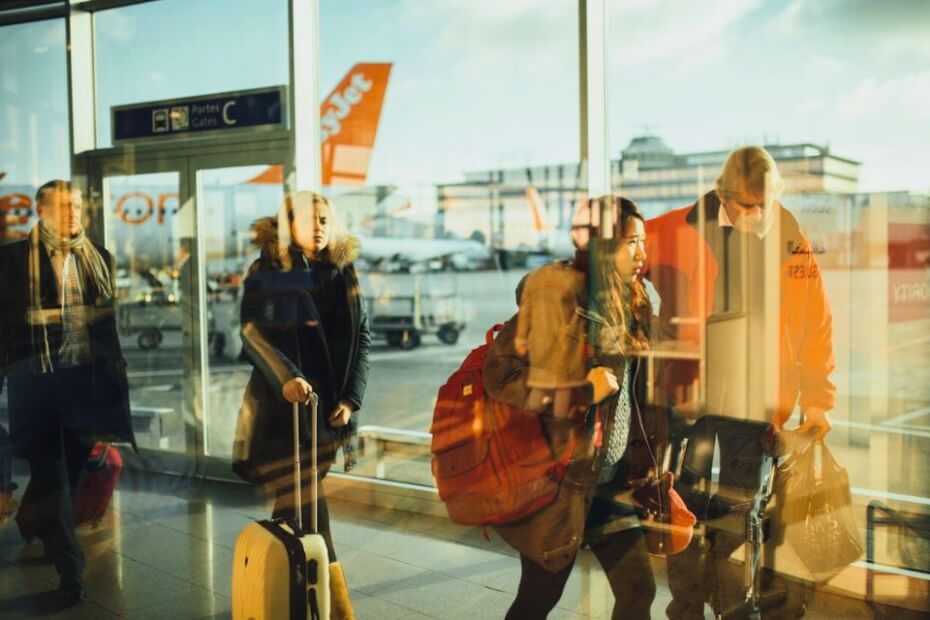
Several airline industry officials urged the UK government to reconsider requiring transit passengers to have an Electronic Travel Authorization (ETA).
This issue has come up multiple times during the inquiry by the Justice and Home Affairs Committee of the United Kingdom (UK) Parliament on border electronic management systems.
Tonia Fielding, director of Services at Heathrow Airport, revealed that the ETA is their “biggest concern.”
“We do believe that it will have an impact on our connecting passengers and therefore on us as a hub airport,” she said at a meeting with the committee on 19 March.
Heathrow services just under 80 million passengers yearly, and 18 million are connecting or transiting passengers.
These connecting passengers enable Heathrow and the UK to be the “most connected airport in the world,” Fielding said.
She explained that if passengers could connect through airports with no added requirement or fee, they would choose that instead of the UK.
“[Airside transit passengers] will not be entering into our country, so we deem them to be low risk,” Fielding said.
Connecting flights “is the highest source of anxiety for passengers,” and the ETA is not going to help, she added.
Airlines UK, the trade body for UK-registered airlines, and the International Air Transport Association (IATA), the trade body of airlines worldwide, shared the same feedback in their written evidence submitted to the committee.
UK-based airlines are concerned about the negative impact of requiring the ETA for all passengers transiting through the UK.
Airlines UK stated, “This requirement will place the UK at an immediate competitive disadvantage compared to its European neighbors.”
Previous calls for scrapping ETA for transit passengers
Heathrow Airport CEO Thomas Woldbye has also said he wants the ETA scrapped for transiting passengers.
He said travelers “transiting airside to move on to another country” should not have to pay £10 for a brief stop.
Paul Charles, former Virgin Atlantic communications director, said, “Taxing transit is tantamount to failure.”
Sean Doyle, CEO of British Airways, also said the ETA may discourage passengers from transiting through London’s Heathrow Airport.
He said it is an added cost and may cause possible delays for travelers who do not need a visa for short trips and transiting in the country.
The Board of Airline Representatives (BAR) UK had also claimed that charging airside transit visa-exempt passengers is unjust.
They argued that airside passengers, or those who do not go through border control, are not technically crossing any borders.
Heathrow sees drop in Qatar-UK passenger numbers
The ETA is the new digital travel permit that will be required for all non-visa nationalities visiting the UK.
Each application costs £10 and allows multiple visits over two years or until the passport it is linked to expires, whichever comes sooner.
Currently, only travelers from Bahrain, Jordan, Kuwait, Oman, Qatar, Saudi Arabia, and the United Arab Emirates (UAE) must have an ETA to visit the UK.
Fielding revealed that Heathrow Airport had seen a drop in passenger numbers for Qatar to UK flights since the introduction of the ETA.
She told the committee, “We have seen a decline of about 14,000 passengers on those flights over the last three months.”
However, she also said there may be many other reasons for the decline in passenger numbers.
They have also yet to look into the nationalities of the passengers flying on those flights.
Still, she believes “there is a risk” of losing transiting passengers with the new requirement and fee.
Airlines UK wrote that the ETA is a “barrier” and an “additional administrative burden” to transit passengers.
The airline body said this “makes transiting through the UK much less competitive than using an alternative EU hub.”
This shift of travelers to other EU airports could impact the UK’s status as a global hub. It may also result in job losses in the airline industry.
ETA and ETIAS comparison
The European Union (EU) will implement a similar electronic border management system.
Its European Travel Information and Authorization System (ETIAS) will be required for all nationalities who can visit the Schengen Zone without a visa.
The ETIAS will also be slightly cheaper than the ETA, at €7 (£6), and it will be valid for a year longer.
However, children aged 17 and below and elderlies aged 70 and above are also not required to obtain one.
The ETIAS scheme will also not apply to transiting passengers who do not cross the border.
Airlines UK calls on the UK government to apply the same ETIAS scheme to the ETA scheme. This includes transit visitors or those who do not go through border control.
Another comparison point between the ETA and ETIAS is implementation.
Once the ETIAS is launched in mid-2025, it will have a transition and grace period to ease change for travelers.
While the ETA rollout is phased by nationality, “it appears as though we will go from the off on day one,” said Fielding.
Other considerations for ETA implementation
IATA also suggested that the UK government “provide travelers with proof of their ETA, beyond just an email.”
Despite the advanced passenger information (API), it “may be useful in system outages or planned maintenance.
It will also be helpful for third-party verifiers, such as other third-country border agents.
Passengers can use proof of ETA other than email for reference in case they have doubts about its presence or validity.
IATA also suggested having support centers for passengers and carriers to address issues that may arise with the ETA system quickly.

